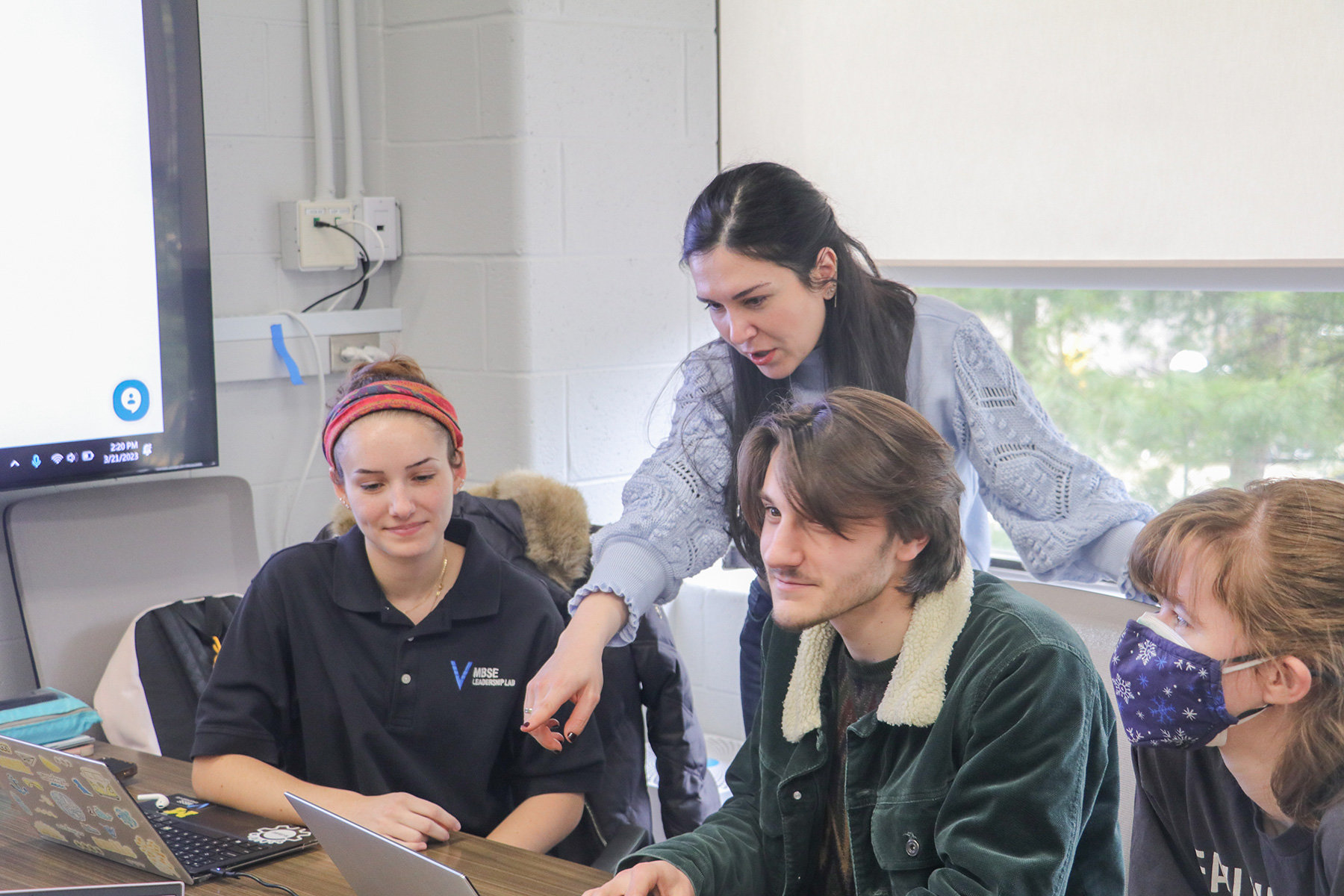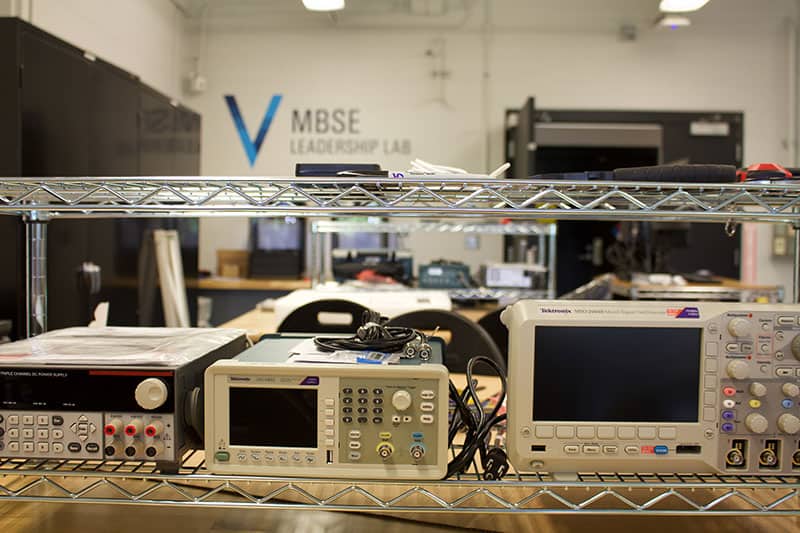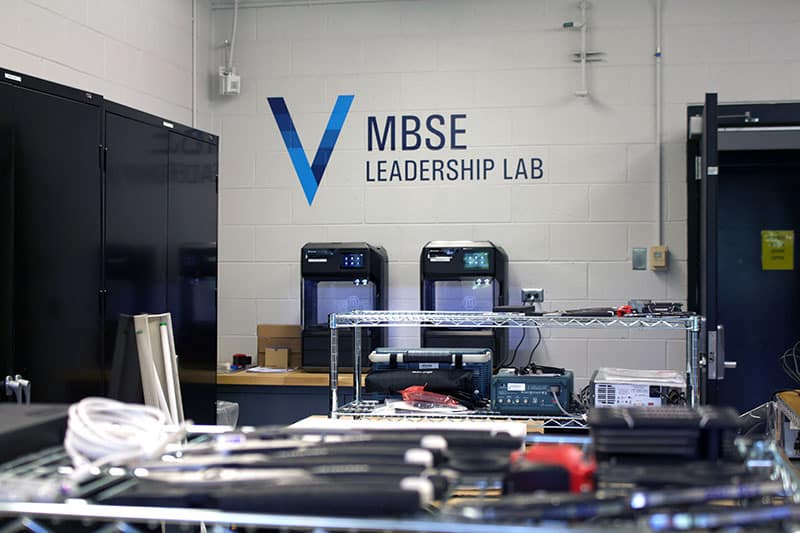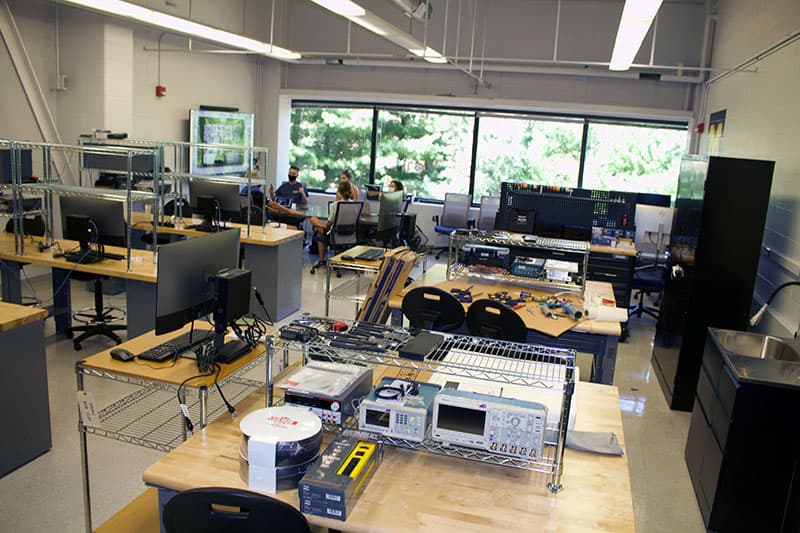The MBSE Advantage
New curricular emphasis that incorporates industry practices such as Model Based Systems Engineering (MBSE) give our students a distinct advantage when seeking internships and jobs.
Our focus is on connecting textbook aerospace engineering knowledge with real world skills they need to succeed in aerospace careers.
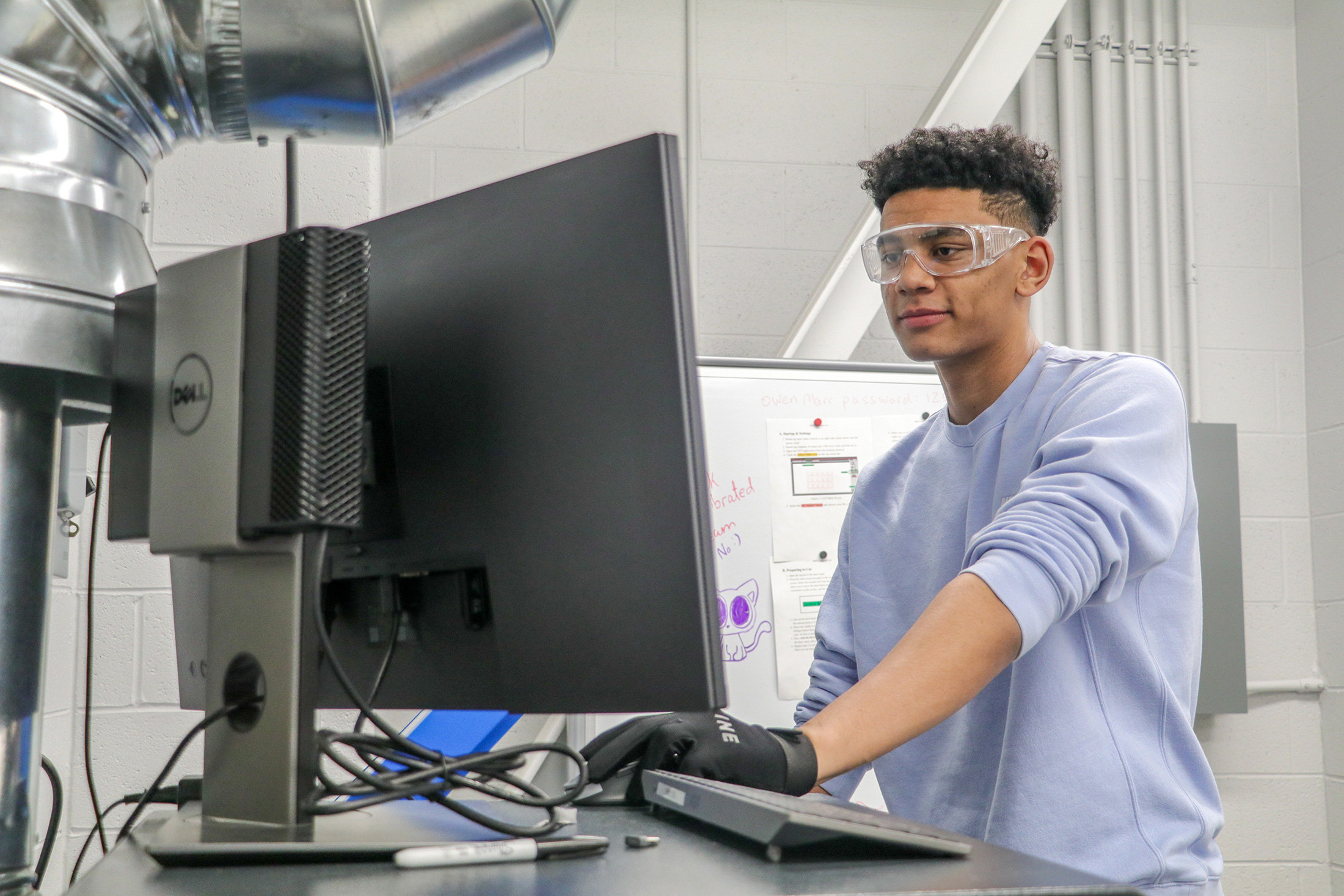
MBSE
Model-based systems engineering is the formalized application of modeling to support system requirements, design, analysis, verification and validation activities beginning in the conceptual design phase and continuing throughout development and later life cycle phases. It has become an industry best practice over the last few years, and U-M students with MBSE experience are highly sought after.
MBSE Leadership Lab
A first-of-its-kind facility for Aerospace Engineering students, the lab offers a flexible product development and teaming space where students collaborate in cross-campus projects to design, build, test, and fly aircraft using MBSE and industry-proven systems engineering tools & processes. It serves as a gathering space for students, with state of the art equipment, including:
- Flexible lab benches for experiments and assembly stations
- Two networked 3D printers, carbon fiber capable
- Powerful laser cutter
- Soldering station
- Vacuum former
- PCB printer
- 3D scanner
- High-end simulation workstations with 40” screens and 8GB VRAM
Teaming space includes
- 10’ conference table
- 86” 4k monitor & Zoom hub
- Soundbar and subwoofer
x88 Courses
With three intensive courses spanning a 2-year period, the x88 series will help U-M aerospace students excel in complex product development in an industrial enterprise. The series is built upon a structured product development process, with the strong support of industry advisors and executives. This program is a one-of-a-kind offering amongst R1 institutions.
In these courses, students learn to:
- Apply MBSE methodology to solve complex engineering problems
- Confirm a product or technical project meets customer needs and/or requirements using disciplined tools and processes
- Create and manage a project plan for complex products and systems
- Apply risk management tools and processes to effectively manage and mitigate risk
- Create and manage budgets to effectively manage complex technical systems
- Enable high-quality manufacturing of designs
- Manage complex cross-functional team process, guiding teams through challenging engineering activity
- Deliver manufacturing-feasible designs, including material and process selection for optimal production
Additionally, they will be eligible for an INCOSE certification upon successful completion of all three courses.
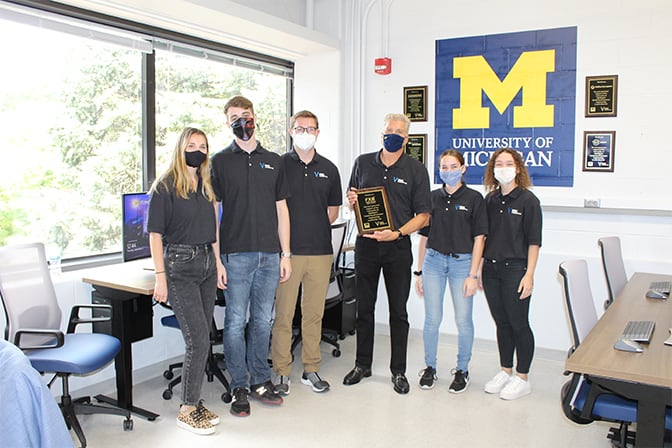
Real Impact
After one year, our students found MBSE programs at U-M Aerospace to be the difference maker. 100% of the students involved say participating in these courses will have a distinct impact on the first few years of their careers. They also say:
“I have never had a more impactful course than the MBSE course sequence. The skills I’ve learned and applied here took up the entirety of my interview discussions and I was able to walk away feeling accomplished as the interviewers applauded me for the work I had achieved.”
“I believe that this course closely reflects what future work in the industry would look like. It’s almost like having an internship without actually going through the painstaking interview process. This course has allowed me to see what my future will be like, allowing me to love this industry even more.”
“By explaining what we were doing in the course and within our project teams, I was able to initiate a high level discussion on my knowledge of systems engineering. I originally applied for an operations analysis position, but after the noted conversation, I was hired in as the senior systems engineer with a significant pay raise.”
“The gateway reviews helped formalize the management and engineering work that I do on my project team. I credit that experience as the main reason I got my internship.”
“In the short time I have been involved in working in the lab, I have learned countless skills from the MBSE environment, both in the design and modeling processes, risk analysis, and design reviews, but also in the interpersonal communications necessary to create the type of crafts we strive to make. There is so much communication behind the scenes with industry, with teammates, with coworkers and bosses, and so much of that has prepared me for industry in a way I can’t imagine. Whatever job I choose after college will definitely be from a broader design perspective, with a special emphasis on the skills and techniques model-based systems engineering has taught me.”
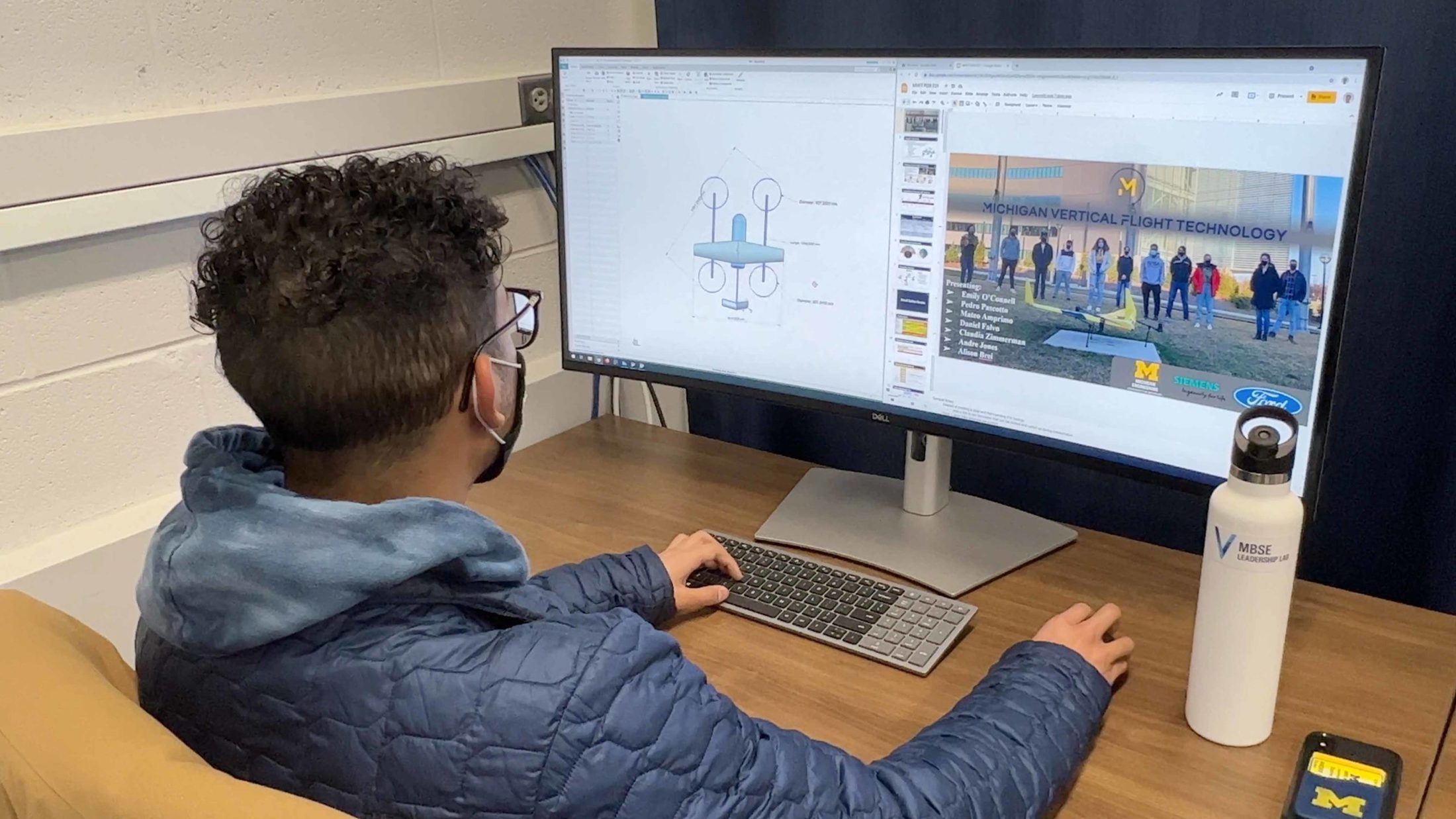
RECENT MBSE NEWS
-

Professor Venkat Raman Appointed James Arthur Nicholls Collegiate Professor
-
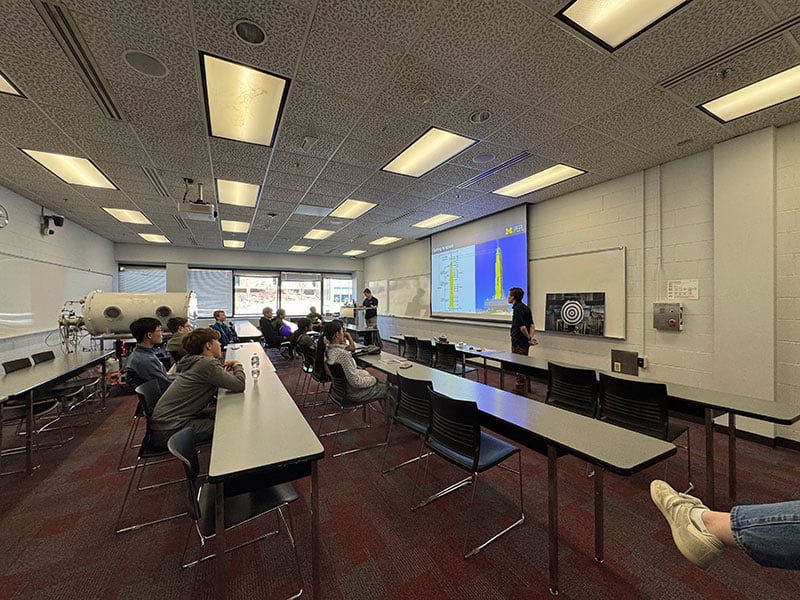
2025 Aerospace Day Welcomes Over 110 Students and Parents to the Department of Aerospace Engineering
-
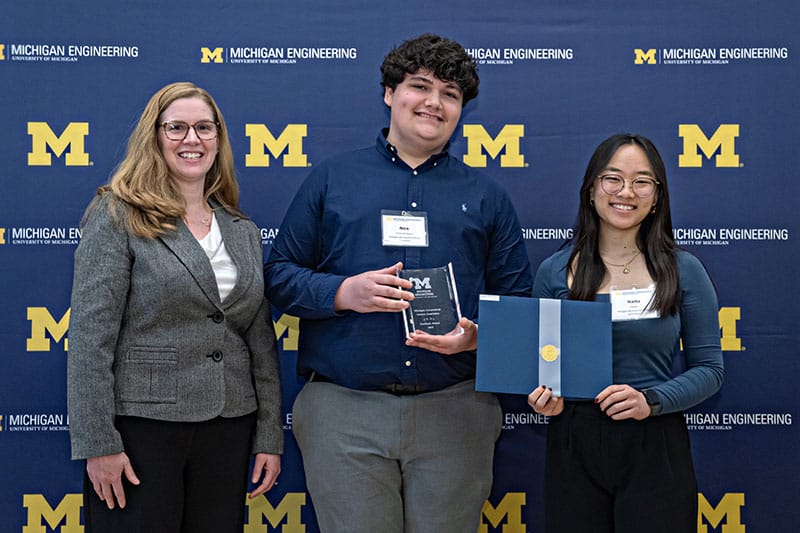
MASA Student Rocketry Team Receives Award for Resilience and Perseverance
-
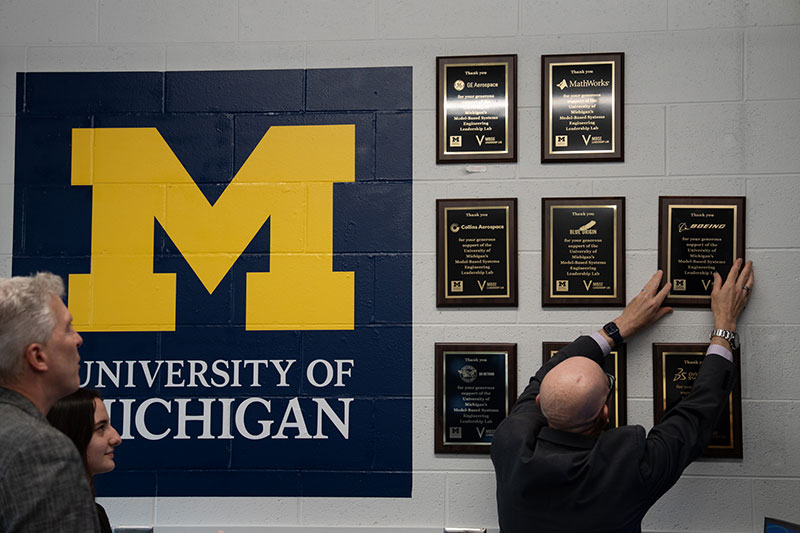
Boeing Joins the MBSE Ecosystem
-
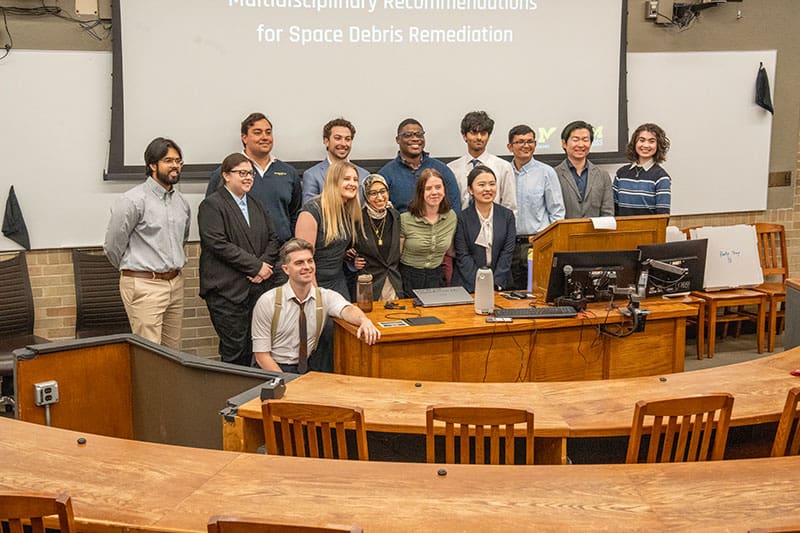
Professor Oliver Jia-Richards Co-Instructs Problem Solving Initiative at U-M Law School
-

Doctoral Student Recognized with NSF Graduate Research Fellowship Program Honorable Mention
-

PhD Candidate Receives DoD National Defense Science and Engineering Graduate Fellowship
-
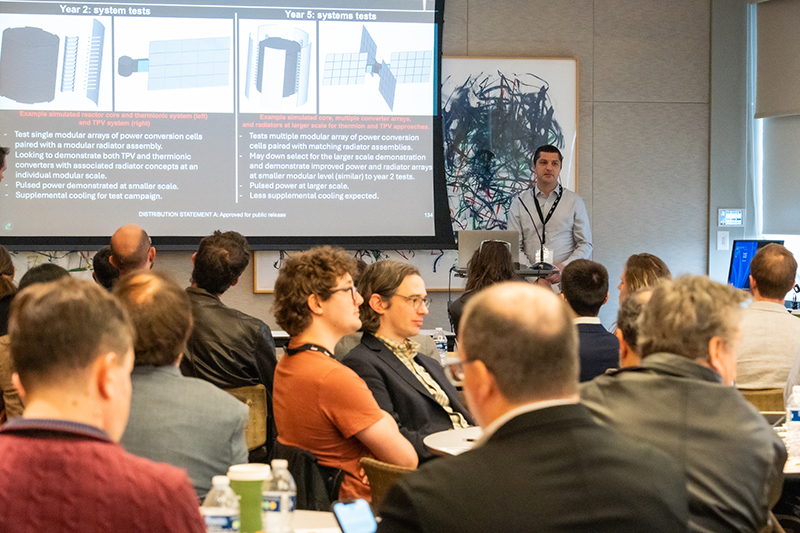
The People Behind SPAR: Eric Viges
-
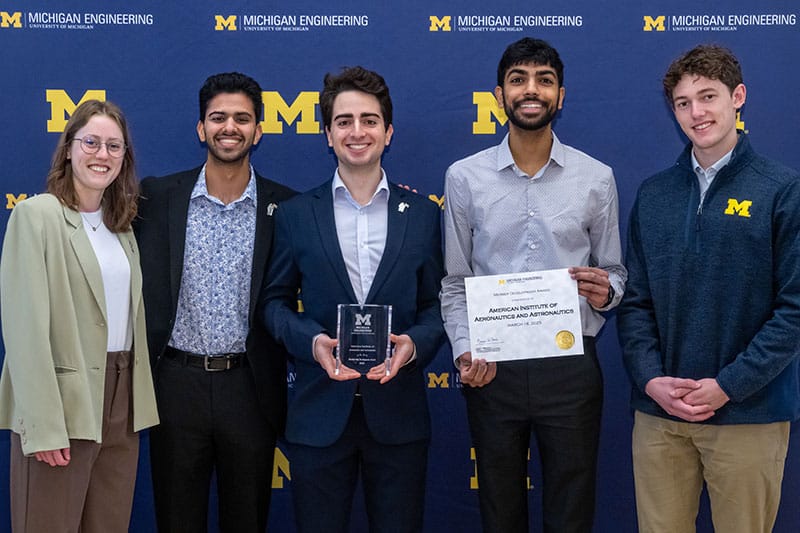
U-M AIAA Student Chapter Receives 2025 Membership Development Award
